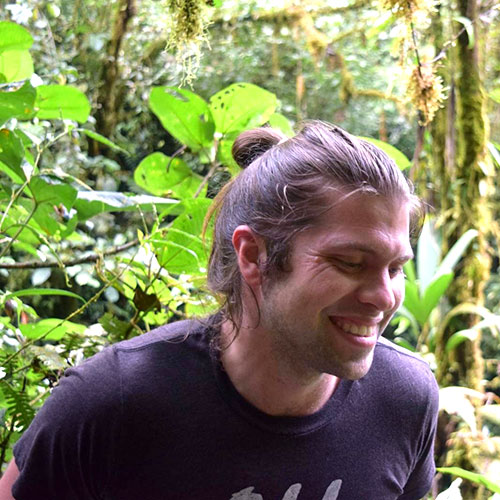LET’S DO LUDDISM
★ ★ ★ ★
THE SOCIALIST NIGHTMARE OF CAPITALISM

Image by Andrea Zambrano Rojas
By Cory Massaro
A grit slurry will meet all your nutritional needs. The slurry’s manufacturer will print sans-serif catechisms on its bottle assuring you that the bottle is made of a responsible kind of bioplastic. And no other slurry will be available for purchase.
This “socialist nightmare” will be brought to you by capitalism. I am writing a few days after the 118th Congress of the United States of America passed concurrent resolution 9, “Denouncing the horrors of socialism.” The term socialism is kept intentionally shadowy within U.S. political discourse, but it seems to mean, “anything that lawmakers or their corporate lobbyist friends don’t like”; or, as former U.S. President Harry S. Truman put it, “anything that helps all the people.”
For some Americans, “socialism” evokes bare supermarket shelves, bread lines, the absence of diversity in clothing and consumables. I leave aside for now the question of whether that kind of uniformity, that absence of product diversity, is necessarily bad. For me, the much more important question concerns how the present economic system destroys cultural and biodiversity much more effectively than any proposed socialism might limit consumer choice.
The grit slurry will be synthesized from a variety of organisms whose genomes the manufacturer has copyrighted. No other entity will be permitted to grow, cultivate, or own those organisms. And no other organism will be edible.
According to a study published in the Proceedings of the National Academy of Sciences, biodiversity is highly correlated with linguistic and cultural diversity: regions of the planet where biodiversity is high tend to boast a higher number of languages, and where it is low, there tend to be fewer languages. And just as many species are endemic to highly biodiverse ecosystems—i.e., those species are not found outside of one specific region—so many of these languages are unique to their regions.
According to the Language Conservancy, about 7000 languages are spoken on the planet today (the exact number isn’t relevant since the distinction between “language” and “dialect” is not rigorously defined and is often drawn for geopolitical, rather than linguistic, reasons). One language goes extinct every 40 days, and 28 entire language families have been lost since 1960.
You will speak The Language. And no other language will be speakable.
Much of the blame for this lies with technology. When technologists create websites, applications, or devices, they somehow always make the same decision about language support: start with English (or some other colonial language), then add support for other widely-spoken colonial languages, and never get around to the many “small” languages. Engagement with the global economy, education, and employment depend increasingly on software, so, often, one must speak a hegemonic language in order to survive and thrive.
This process is part of digital colonialism (or the more specific “digital minorization“). If we view tech-mediated language loss through this lens, the correlation between linguistic diversity and biodiversity becomes clear. Just as colonial practices have physically terraformed environments—overhunting, the clearing of forests, the introduction of invasive species—digital colonial practices terraform the ethereal realms of language and culture.
You will move to the Metaverse. When you are hungry, a notification window with beveled corners will crowd your VR display. In The Language, it will say, “You are hungry. The price for sustenance is such.” You will sell off some of your Metaverse assets to purchase the grit slurry, and it will show up at your door. And by no other means will the slurry be attainable.
I’m writing this in English, and if you’re reading it, you probably speak English, too. Hundreds of languages in the Amazon region are endangered. English won’t be dying out anytime soon, but these issues still affect you and me. Not just in the abstract way that climatological harm affects us all, but immediately.
The other Amazon will illustrate my point. Techie colonialism makes casualties of cultures as well as languages, and the loss of local culture even at the level of cities and towns can do measurable economic harm. And no other company creates as many colonies as Amazon.
In the US, when Amazon wants to build a new fulfillment center, it is courted by dozens of counties. County leaders believe the common wisdom that Amazon will create new jobs and bring in money. However, the Economic Policy Institute has debunked this notion. A new fulfillment center increases employment in the warehousing and storage sectors, but doesn’t create new jobs overall. In fact, warehouse workers’ pay is, on average, ten percent lower in counties that contain an Amazon fulfillment center. In the long term, the study suggests that overall employment may actually decrease in counties where a fulfillment center is built.
You will not go outside. You won’t really want to. Outside will be concrete and rootless dust. And no other terrain will be visible.
I return to the image of bare supermarket shelves and the fear it elicits. I propose that we transfer that fear elsewhere. If a shelf containing only a single brand of bread and a single brand of beans is frightening, how much more frightening would it be if the Earth’s biodiversity were pared down to a single species of grain, a unique legume? Is socialism really the road to bread lines, or is it capitalism that replicates itself everywhere; replaces local growers, bakers, artisans, and makers with huge corporate brands; impoverishes the masses; and fills the shelves with identical bottles of Soylent?

Cory Massaro is a native of Ohio, U.S.A., now at home in Quito, Ecuador. He spends his time learning languages, writing, playing music, coding, and propagandizing. He actively opposes materialism, consumption-as-cultural mandate, and all forms of hegemony. He is in favor of small, robust communities and gently destroying hierarchies wherever he goes. His fiction and poetry draw on the grievances he has stored in his heart since working in technology; his dearest hope is to predict accurately how egalitarian, worker-centered societies will revive the oral tradition to weather the climate wars.
























0 Comments
Trackbacks/Pingbacks